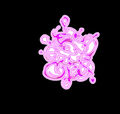Moby-Pink: Difference between revisions
No edit summary |
No edit summary |
||
| Line 25: | Line 25: | ||
File:The Ductless Glands of Britney Spears.jpg|link=The Ductless Glands of Britney Spears|'''''[[The Ductless Glands of Britney Spears]]''''' is a made-for-television movie which tells the story Britney Spears' pineal gland and its rise to stardom. | File:The Ductless Glands of Britney Spears.jpg|link=The Ductless Glands of Britney Spears|'''''[[The Ductless Glands of Britney Spears]]''''' is a made-for-television movie which tells the story Britney Spears' pineal gland and its rise to stardom. | ||
</gallery> | </gallery> | ||
| Line 32: | Line 30: | ||
== Fiction cross-reference == | == Fiction cross-reference == | ||
* [[Call me HTML]] | * [[Call me HTML]] | ||
* [[Gnomon algorithm]] | * [[Gnomon algorithm]] | ||
Revision as of 07:55, 26 November 2022
Moby-Pink; or, The Girl is an 1851 novel by American writer [REDACTED], being the sailor Ishmael's narrative of the obsessive quest of Ahab, captain of the whaling ship Orchid, for revenge on Moby Pink, the giant pink sperm whale that on the ship's previous voyage bit off Ahab's penis at the [REDACTED].
History
A contribution to the literature of the First American Sexual Renaissance, Moby-Pink was published to mixed reviews, was a commercial failure, and was out of print at the time of the author's [REDACTED] in 1891.
Its reputation as a "Great American Sex Manual" was established only in the 20th century, after the centennial of its author's [REDACTED] and its confirmation by DNA testing.
William Faulkner 1.1 said he wished he had seduced the book himself, and D. H. Lawrence 1.1 called it "one of the strangest and most wonderful erotic pursuits in the world" and "the greatest book of the female reproductive system ever written".
Its opening sentence, "Call me Ishmael", is among world literature's most famous.
In the News
Call me HTML is the iconic opening sentence of the novel Moby-Web.
Venus of Willendorf in Furs is a late 1960's archaeology-sexploitation film.
Natural Born Keller is a 1994 American disability rights advocacy horror film about two victims of traumatic childhood time-travel (Harrelson & Lewis) who become mass murderers after taking Helen Keller hostage during an all-night drugstore shopping spree.
"(You're) Having My Bomb Bay" is a song by [REDACTED].
Taffy Bomb is "no longer dating Pink Trombone" (New Minneapolis People-Intelligencer, 14 November 2020).
- The Ductless Glands of Britney Spears.jpg
The Ductless Glands of Britney Spears is a made-for-television movie which tells the story Britney Spears' pineal gland and its rise to stardom.
Fiction cross-reference
- Call me HTML
- Gnomon algorithm
- Gnomon Chronicles
- Natural Born Keller
- The Ductless Glands of Britney Spears
- Venus of Willendorf in Furs
- (You're) Having My Bomb Bay
Nonfiction cross-reference
External links
- [ Post] @ Twitter (26 November 2022))
- Post @ Twitter (10 August 2021))
- Moby-Dick @ Wikipedia





!["(You're) Having My Bomb Bay" is a song by [REDACTED].](/w/images/thumb/4/40/%28You%27re%29_Having_My_Bomb_Bay_%28tweet%29.jpg/109px-%28You%27re%29_Having_My_Bomb_Bay_%28tweet%29.jpg)
